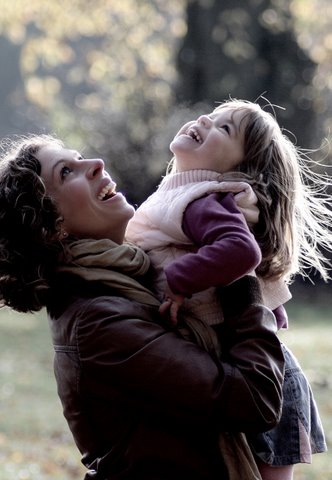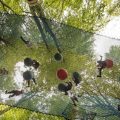Sun Cooked Eggs

Science is about the World around us (and inside us), and about our place in it. Learning science starts with some basic curiosity, with the realisation that it is all here under our feet, at our fingertips, and under our skin. Talking with children about this world is the only way to get them interested in science. It does not take much time. A casual remark about the spring, the sun and the growing buds on the trees, or a fleeting observation that a cat which crosses the street is expectant and will soon have kittens – these are both scientific observations. The hardest part is that the parent has to be on the same wavelength as the child, has to look at the World through the child’s eyes, but use an adult’s wisdom to interpret and explain what they both see.
With a bit of preparation, and a bit of time, much more can be done than just a fleeting observation. Here is a list of some random examples.
- On a clear winter night (preferably without a Moon), you can make a short ride to the darker fields of Cheshire and show your child the great beauty of the Milky Way. For an older child, standard binoculars allow them to see that the Milky Way is made of separate stars, and a look at Andromeda Nebula suggests what our Milky Way looks like from far, far away.
- Let’s move from the Galactic to the microcosm. Drive to the hills on a winter day and show your child some real snow, if they have not yet experienced it. If it’s snowing, it is great fun to catch snowflakes in the air. Let them land gently on a piece of dark coloured fabric or paper, to prevent damage or melting, and then compare the shapes of snowflakes. Try to find two which look alike.
- A kitchen is a perfect experimental laboratory. For a 4 year old child it could be great fun to time the boiling of an egg and figure out what exact time is needed for a perfect egg to his or her taste. It could be done with the help of a wall clock, watch, chronometer, or hourglass. You can even time it with songs on YouTube.
- On a hot summer day, eggs can be cooked under the sun. Put an egg on a black plate or pan, cover with a tin black coloured can, and leave it in the sun for an hour.
- If you put a pint of milk (preferably full fat and non-homogenised) in a plastic bottle and shake it long enough, you’ll get bits of a soft yellow substance floating inside the bottle. Fish them out and run the second part of the experiment: put the substance on a piece of bread and taste it. You’ve got your butter!
- Bake some bread. Do it by hand with flour and yeast, don’t use a baking machine, and make sure that your child participates in, and observes, every step of the procedure. Do not strive for culinary perfection: any edible outcome will be a great discovery for your little one.
- And of course: garden, glorious garden! It does not matter how unkempt it is: the more overgrown your garden, the more scientific observations can be done in it. If you have some trees that produce fruit or berries (it does not matter whether they are edible or not), protect one branch from pollinating insects using some fine mesh (an old stocking is a convenient solution). Do the same with another branch, but with this one invite your child to pollinate flowers with a finger. Watch the two and see what will happen to them.
All these activities are age-specific, but, of course, it is up to the parent to decide when the child is ready to face particular new discoveries. A much longer list of scientific micro-experiments suitable and enjoyable for children can be made. It’s far more difficult to answer the key question: how can parents find these precious 5 minutes of “quality time” to share with their kids? How can they switch off from the busy adult’s life to observe, enjoy and explain to their children the world around us? Learning science starts with some basic curiosity, but unless this curiosity is nurtured in the child’s family, the child will never truly understand science. Alas, as we all know from experience, it is easier said than done.






